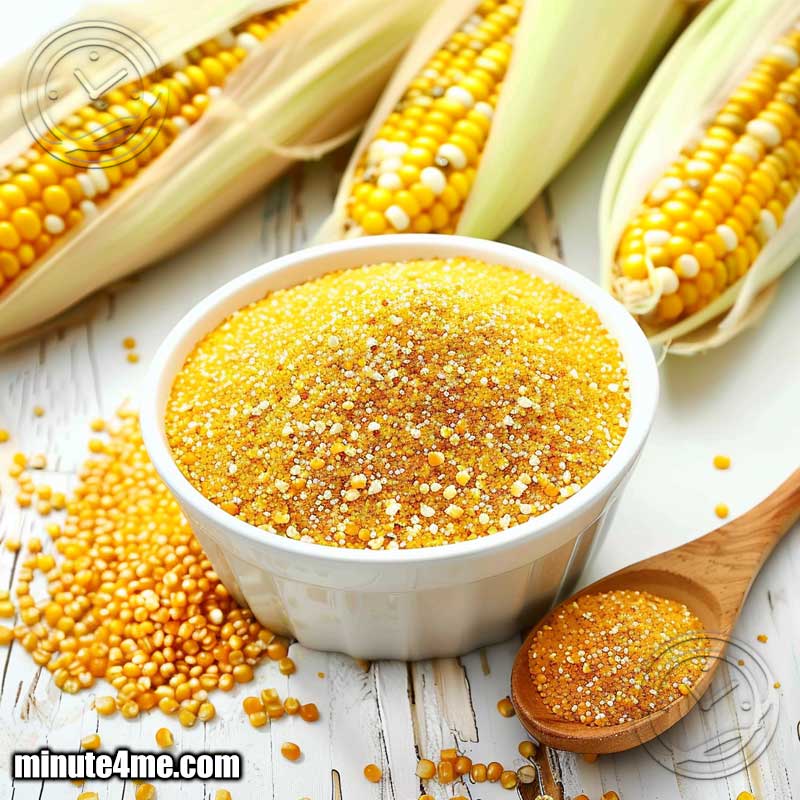Grits and the Mediterranean Diet
Grits, often a misunderstood member of the grain family, especially in a Mediterranean context, have their roots deeply planted in Southern American cuisine.
Made from hominy, corn that’s been soaked to remove the hull and germ, they present a curious case in Mediterranean circles.
Stone-ground grits, considered the gold standard for grain purists, are less refined, retaining more of the corn’s inherent nutrients.
The Mediterranean diet, famed for its inclination towards health and longevity, typically sidesteps refined grains.
But it’s not all black and white.
There’s a gray area where grits can sneak in, especially when they’re prepared thoughtfully, aligning more closely with whole grain virtues.
The Nutritional Profile of Grits
Breaking down the nutritional content of grits reveals a landscape of carbs, with a side of protein and fiber.
Stone-ground varieties shine in this comparison, offering:
- A modest amount of fiber, which is often lost in more processed versions.
- Essential vitamins and minerals, like B-vitamins, iron, and magnesium.
While they can’t boast the whole grain badge of honor, stone-ground grits are not the villain in our dietary tale.
They’re like the understudy waiting in the wings, capable of delivering a good performance when the lead grain needs a break.
Is Canola Oil a Fit for Mediterranean Diet?
Let's uncover a world where heart-healthy fats reign supreme, with olive oil often taking the crown. But what about the…
Can You Eat Grits on the Mediterranean Diet?
Here’s the rub: the Mediterranean diet isn’t about strict rules but rather guidelines to eat by.
Stone-ground grits, with their less refined nature, can make occasional guest appearances.
In moderation, they blend into the Mediterranean tableau, especially when dressed in diet-friendly accompaniments.
Understanding the Mediterranean Diet
This diet is less about restrictions and more about celebrating a diversity of nutrient-rich foods.
It’s like painting a canvas with colorful fruits, vegetables, whole grains, and lean proteins, each stroke contributing to a masterpiece of health and vitality.
Fruits Allowed on the Scarsdale Diet
Unlock the secrets of rapid weight loss with the Scarsdale Diet's tantalizing array of allowed fruits. Delve into a world…
Key Components of the Mediterranean Diet
Let’s dissect the Mediterranean diet to understand its core elements better:
- Fruits and Vegetables: They’re not just sides but the main event in every meal.
- Whole Grains: The backbone, providing sustained energy and nutrients.
- Proteins: Preferably from fish, poultry, beans, and nuts.
- Fats: Largely sourced from olive oil, known for its heart-friendly properties.
The Role of Grains
Grains in this diet are like the base of a pyramid, fundamental and sturdy.
Whole grains are preferred because they’re packed with nutrients and fiber, which aid in digestion and keep you feeling fuller longer.
Refined grains, like those instant grits, often lose these benefits during processing.
Mediterranean Diet for Crohn's and Colitis: Does It Help?
Discover the transformative power of the Mediterranean diet for Crohn's and Colitis sufferers. With its rich array of fruits, vegetables,…
Tips for Including Grits in a Mediterranean Diet
Integrating grits into a Mediterranean lifestyle can be like adding a dash of unexpected flavor to a classic recipe—it’s all about how you do it.
Choosing the Right Type of Grits
Stone-ground grits stand out as the best choice for those looking to stay true to Mediterranean principles.
They maintain more of their natural character and nutritional profile, offering a healthier version compared to their instant relatives.
Healthy Toppings and Pairings
To Mediterraneanize your grits, think beyond the usual butter and cheese.
Here’s how you can pair them healthily:
- Vegetables: Sautéed greens or roasted veggies add color and nutrition.
- Proteins: Grilled fish or chicken lend a lean, flavorful touch.
- Fats: A drizzle of olive oil can infuse your dish with a heart-healthy glow.
By considering these aspects, grits can find a place in the Mediterranean diet, proving that even traditional Southern fare can have a Mediterranean twist.
Conclusion
The Mediterranean diet’s adaptability allows for occasional deviations like grits, provided it’s done wisely and in moderation.
It’s about making informed choices that align with the diet’s healthful ethos.
So, while grits are not a Mediterranean staple, with a few tweaks, they can fit into this wholesome eating plan.






